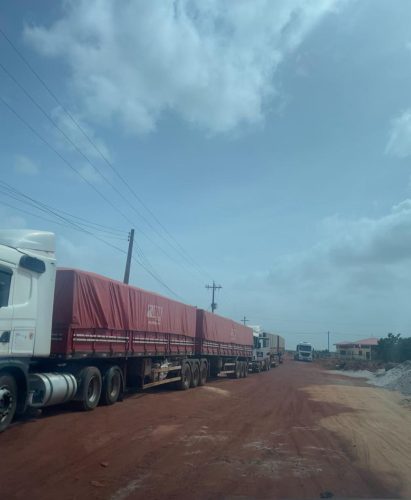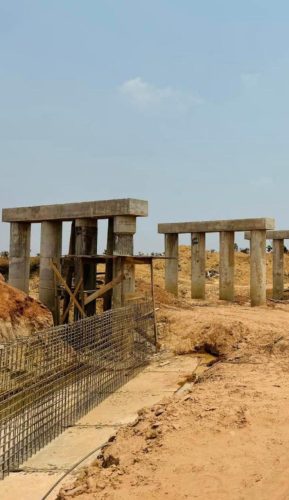Part One
The Rupununi in Region Nine ‘experiences’ two cut and dried weather seasons, a wet season from April to August and a dry one from September to March. There is no time when Lethem, particularly, does not wish that the dry season gets the lion’s share of the wet weather cycle, to the extent that it customarily manifests itself ‘spells’ what, sometimes, is a painful gouge in business activity.
Orland Wong, President of the Rupununi Chamber of Commerce and Industry, told the Stabroek Business during a ‘sit down’ interview at the Movietowne Mall last Monday that, setting aside the vagaries of the weather, ‘doing business’ in the Rupununi faces two major challenges. The first, he said, is a condition of painfully limited access to state contracts; the second is access to land; both constraints are inhibiting in their painfully obvious ways.

He dwells on the plight of the contractors, whom he says exists in considerable numbers and whom he asserts, their confidence in their skills notwithstanding, feel left out in terms of the extent to which they can make a meaningful contribution to the current phase of the country’s building programme. The building contracts are assigned, overwhelmingly to coastlanders and Wong makes no secret of his belief that it is a prejudice that makes a painful comment on the skills comparisons between coastlanders and contractors from the Rupununi.
In the matter of the distribution of land, Wong says that young people seeking to become involved in various forms of entrepreneurship, including agriculture, are frequently told that there is no land available. Whilst this is happening, he says, individuals who are not resident in Lethem are landowners in the

Region. If the word ‘prejudice’ never crosses his lips, one needs no ‘three guesses’ to determine his thoughts. Existing business owners seeking space for expansion into other sectors feel the ugly sensation that comes with being turned away.
The Rupununi Chamber, Wong says, has raised the matter of land ownership with the Lands and Survey Department in Lethem. That has changed nothing. The ‘outpost’ office of the Department responsible for land administration is painfully impotent. To secure a meaningful ear one has to travel to the Capital. Wong says that the issue of allocating land to residents has been raised with various officials including President Irfaan Ali. Nothing, he says, has changed.
Cattle rustling has become the bane of the Rupununi business community’s existence. Animals in the Rupununi are not customarily penned. The view is that they favour wandering, locating their own fresh water and green grass. ‘Freedom’ creates an indifference to danger and that is when, Wong says, they become vulnerable.
Cattle rustlers, according to Wong, are inclined to strike when the attention of the residents is distracted. The occasion of the Rupununi Rodeo season represents a kind of a ‘happy hour’ for cattle rustlers. They strike too on national and religious holidays when farm hands are away. The stolen cattle never fail to find lucrative markets across the border, in Brazil. Law enforcement is making no meaningful ‘dent’ in the practice.
Lethem is a pleasing place to be. The region is well-connected to the coast by air. One domestic airline offers three flights daily. Other airlines also ply the route. Travelling by air, from Lethem to Georgetown and returning home by nightfall, has become routine. Interior travel by air, however, has become (in the opinion of many) costly. A return ticket from Georgetown to Lethem costs approximately $85,000. By comparison, traveling overland costs about $30,000.
The journey by land customarily takes twelve hours and can (for the uninitiated) be arduous. Wong believes that reduced air fares could serve to build more robust and mutually rewarding relationships between the Rupununi and coastal Guyana. The unpaved 450-kilometre trail from Lethem to Linden is usually a discomfiting issue to raise with travelers who ‘do’ the overland trip regularly. During the rainy season, the 450 kilometre trail is often a ‘living hell.’ Vehicles are known to get stuck in the deep gouges, sometimes for days at a time.
Wong told the Stabroek Business that the Rupununi Chanber had received numerous complaints about the state of the road and the length of time it takes to cover the 450-kilometre ‘stretch.’ The condition of the road, Wong says, is rendered much worse by the constant movement of Brazilian “double trailer trucks” laden with corn and soya, for shipping from Port Georgetown to Barbados.










